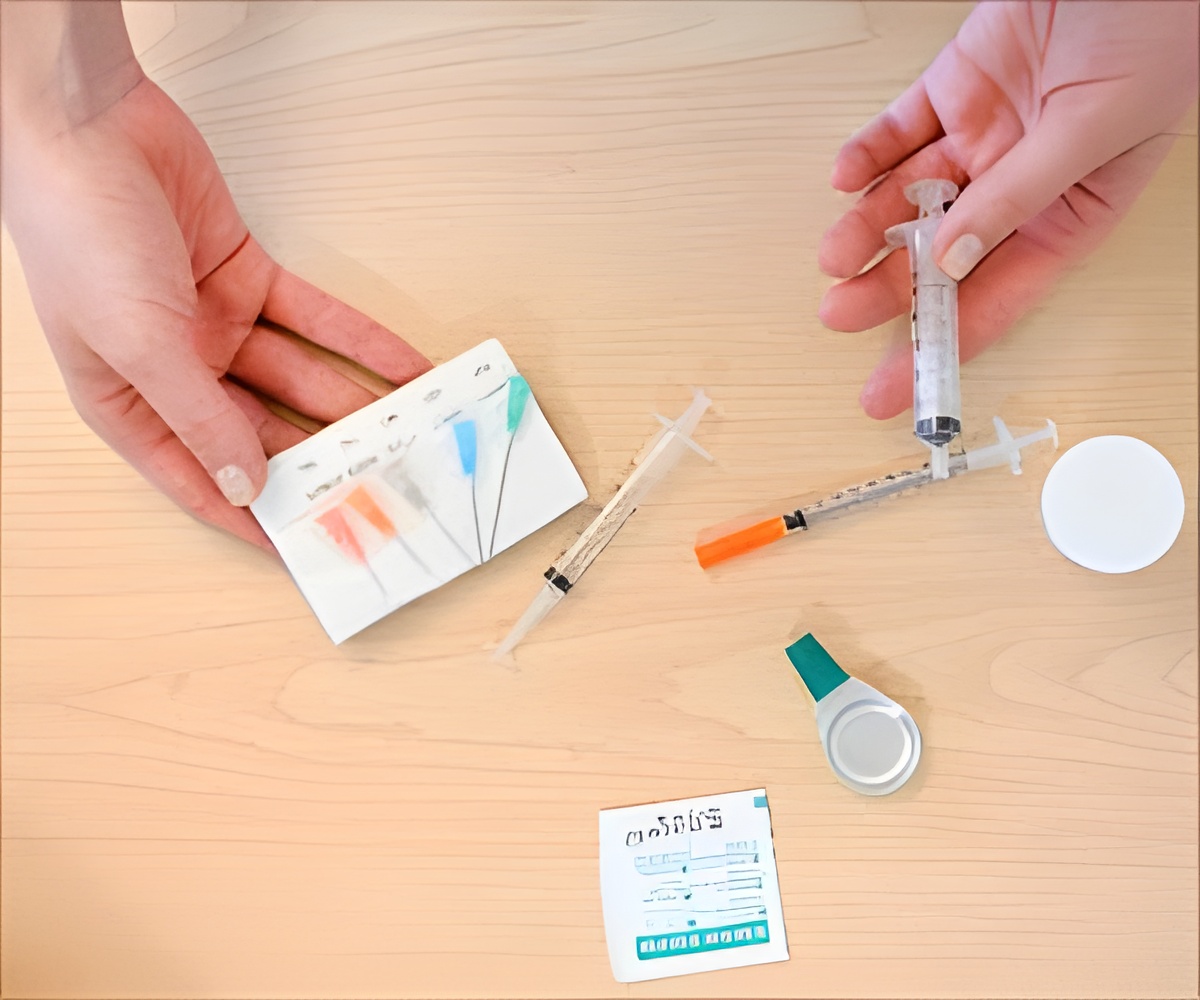Needle-free vaccination that can stimulate the immune response of the human skin is now possible, revealed a research published in Experimental Dermatology.

Researcher Annika Vogt said, "For 10 years, we have been working together on how to use the skin immune system to develop a new, non-invasive vaccination method and in this study, we show how a painless method helps such vaccines cross the skin. The method wakes up skin immune cells so that they are ready to catch the vaccine and generate an immune response."
To make this discovery, the researchers treated natural skin samples with a novel method called cyanoacrylate skin surface stripping (CSSS). They then applied 200 nm particles to the skin surface and used microscopy to compare the penetration of the particles. The particle size reflects the size of viruses and engineered particulate vaccines. They found that the CSSS method enhanced the penetration of the particles to the deeper skin layers, especially to the hair follicles, and activated skin dendritic cells which are key players in the orchestration of the skin immune system.
Results of this novel approach strongly suggest that the combination of an adequate skin treatment with a vaccine specifically designed to target skin immune cells could become a powerful tool for mass vaccination. The findings should be further investigated in clinical trials. Vogt concluded, "If we learn how to better reach and communicate with skin immune cells from the outside, we would be able to develop new tools for the treatment of allergies, inflammatory skin diseases or skin cancer."
Source-Medindia










